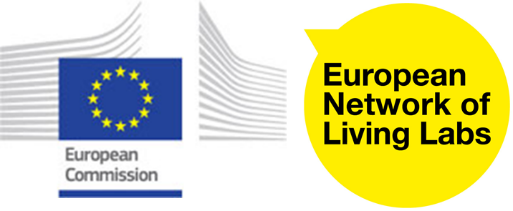Launch event of Flagship 7 of the European Commission’s Zero Pollution Action Plan

Please save the date for the Launch event of Flagship 7 of the European Commission’s Zero Pollution Action Plan [1] - 4 April, 9.00-10.00 .
This event marks the starting point for the communication of the activities of the European Commission – European Network of Living Labs Joint Working Group on Digital for Sustainability, including Zero Pollution, to a wider audience. At the launch, good practices identified by ENoLL will be presented, relating to the reduction of pollution in areas such as mobility, energy, waste management, human health. The best practice examples also relate to methodologies and tools used by Living Labs, prioritising those that are easily replicable, transferable and scalable by interested cities and communities. The Zero Pollution Stakeholder Platform and Living Lab community will be joined by Living-in.EU signatories and supporters. This event is open to all interested parties.
Please register here to attend. You are welcome to contribute via an online questionnaire.
EC – ENoLL Joint Working Group (JWG) on Digital for sustainability, including zero pollution
How can Living Labs support their cities and regions in becoming Green and Digital?
How can Living Labs have a real impact in society by supporting decisions and policy making?
These are the two main questions that the EC – ENoLL Joint Working Group (JWG) on Digital for sustainability, including zero pollution aims to answer. The group will work towards the implementation of Flagship 7 of the European Commission’s Zero Pollution Action Plan[1] which relates to “Living Labs for green digital solutions and smart zero pollution”. The JWG is expected to address some of the major science and technology challenges around the green and digital transition of the EU cities, as well as policy questions about how to maximise the role and impact of living labs in driving this transition.
A living lab, or living laboratory, is a research approach that can be defined as a user-driven, iterative, open-innovation ecosystem, often operating in a territorial context (i.e. city, region or campus), integrating research and innovation processes within a public-private-people partnership. ENoLL, the European Network of Living Labs, is an international non-profit association that promotes the living labs concept globally, and supports project partnership and knowledge exchange between labs.
"Flagship 7: Living Labs for green digital solutions and smart zero pollution [1]
In 2021, the Commission will, together with partners, launch Living Labs for green digital solutions and smart zero pollution to engage with regional and local authorities (for example through the Living-in.eu community) and other stakeholders to help develop local actions for green and digital transformation which contribute to the European Digital Green Coalition and the European Climate Pact. By 2023, the Living Lab members will develop recommendations on using for a climate and environment-friendly use of digital solutions to accelerate zero pollution efforts, with a particular focus on citizen engagement."
The joint working group is composed of DG-CONNECT and DG-ENV from the European Commission side and thematic leaders of ENOLL activities. Stakeholders working in related areas will also be invited to contribute, including Living-in.EU[2] and the Zero Pollution Stakeholder Platform[3] . Other interested parties can contribute via an online questionnaire.
The overall objective of the JWG is to define a set of recommendations by the end of 2022, including a list of KPIs to assess their effectiveness. These recommendations will help local and regional authorities to achieve a climate and environmentally-friendly use of digital solutions to accelerate zero pollution efforts. The recommendations will also serve to raise cities’ awareness of the benefits of using living labs to become green and digital, with a particular focus on citizen engagement, and living labs they can be best used and their impact maximised.
Living Labs are an indispensable innovation tool for communities since they operate as facilitators of the transition towards greener and more digital cities and areas in an inclusive manner. Through co-creation processes with stakeholders and users, they can be used to test the implementation of new products, tools and services and provide a fertile ground for open innovation within the smart city context.
Next steps
The JWG will hold participatory workshops between April and September 2022, to stimulate discussion and exchange of knowledge between Living Labs about the impact on the environment that can be achieved by cross-domain actions and to feed into the preparation of the recommendations.
The recommendations will be published at the end of 2022 and will be presented to the Zero Pollution Stakeholder Platform.
For more information please contact ENOLL at info@enoll.org
[1] Pathway to a Healthy Planet for All EU Action Plan: Towards Zero Pollution for Air, Water and Soil, COM/2021/400
[2] A movement of cities, regions and Member States and with supporters from industry, academia and non-EU public administrations, that promotes the digital transformation based on citizen-centricity and open standards for technical interoperability; www.living-in.EU
[3] The Zero Pollution Stakeholder Platform brings together stakeholders and experts of different policy areas, such as health, agriculture, research and innovation, transport, digitalisation and the environment to support implementation of the EU Zero Pollution Action Plan.







